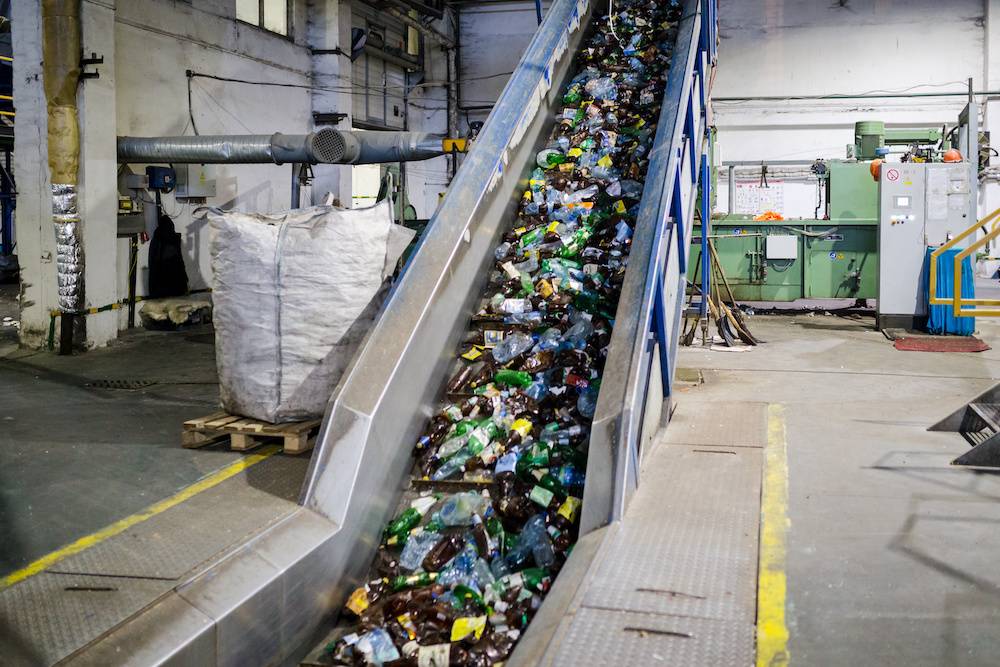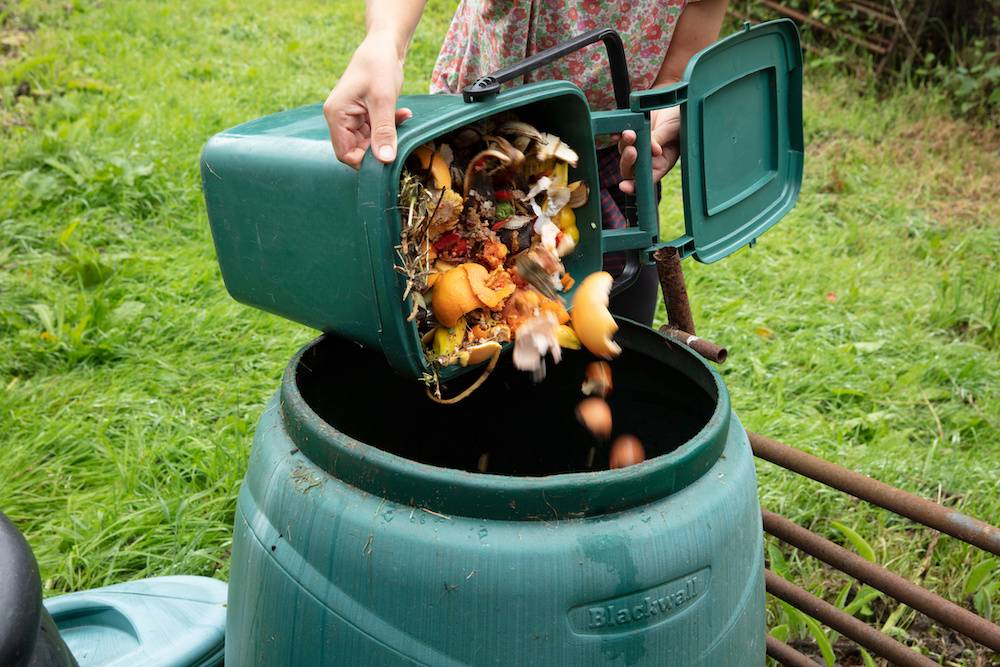Waste management is a critical issue that affects not only our local communities but also the global environment. Improper waste management can lead to pollution of our air, water, and soil, as well as harm to wildlife and plants, this means that it’s essential that we all take responsibility for the waste we produce and ensure that it’s disposed of properly.
One of the most significant environmental impacts of improper waste management is the pollution of our water and soil. When waste is not disposed of correctly, it can end up in rivers, lakes, and oceans, contaminating the water and harming aquatic life, similarly, when waste is not properly contained, it can leach into the soil, contaminating it and making it difficult for plants to grow.
Air pollution is another significant concern caused by improper waste management. When waste is not disposed of correctly, it can release harmful chemicals and pollutants into the air. This can lead to respiratory problems for people living in the area and harm to wildlife.
Waste Management

Improper waste management can also lead to the destruction of natural habitats. Landfills and other waste disposal sites can take up large areas of land, displacing animals and plants. Similarly, when waste is not disposed of correctly, it can end up in natural areas, such as forests and beaches, causing harm to the local ecosystem.
To protect the environment, it’s essential that we all manage waste responsibly and ensure that it’s disposed of properly. This means properly sorting our waste, recycling whenever possible, and properly disposing of hazardous materials. Additionally, it’s essential to support waste management companies that are committed to environmentally-friendly practices.
This is why all of us at Junk Hunters are so against fly tipping, not only could you gain a hefty fine if you are caught, but the damage you are doing to the environment should surely be deterrent enough? The better educated we all are about poor waste management and reducing the amount of waste that goes into landfill sites, the better.
The key takeaway is that proper waste management is crucial for protecting the environment. By properly disposing of our waste, we can help reduce pollution, protect natural habitats, and ensure a healthier planet for future generations. By choosing a professional waste clearance company that uses sustainable methods, we can do our part to make sure that the environment is protected.
Working with a company like Junk Hunters for your waste management ensures as little as possible goes to landfill and all waste materials are reused or recycled wherever possible.
How does pollution harm wildlife?

Pollution can harm wildlife in a variety of ways including:
- Contamination of food and water sources: Polluted water and soil can contaminate the food and water sources that wildlife relies on. This can lead to illness or death for animals that consume contaminated food or water.
- Physical injury: Some types of pollution, such as oil spills, can physically harm wildlife. Birds, for example, can become coated in oil, making it difficult for them to fly and causing them to suffer from hypothermia. Marine mammals and sea turtles can also be harmed by oil spills, as they can ingest the oil or become entangled in debris.
- Behavioural changes: Pollution can also cause behavioural changes in wildlife, making it harder for them to find food, shelter, and mates. For example, noise pollution from human activities can disrupt the mating and foraging behaviours of certain birds and marine mammals.
- Reproductive problems: Pollution can also harm the reproductive systems of wildlife, leading to a decline in population. Chemicals found in pesticides and other pollutants can affect the hormones of animals and cause reproductive problems, such as decreased fertility or birth defects.
- Reduced genetic diversity: Pollution can also affect the genetic diversity of wildlife populations. For example, pollution can cause mutations in the DNA of animals, leading to reduced genetic diversity and making populations more vulnerable to disease.
It’s important to note that pollution can harm wildlife in many different ways and at different levels of severity, and it can also interact with other human activities such as habitat destruction and hunting, compounding the negative effects on wildlife. Waste management is such an important topic, to protect our natural resources and to ensure human health is not negatively impacted.
Improper Waste Management and types of waste
There are several types of waste that are particularly harmful to the environment:
- Hazardous waste: This includes materials that are flammable, corrosive, toxic, or radioactive. These materials can release harmful chemicals into the environment and can cause serious health problems for people and animals. Examples of hazardous waste include batteries, pesticides, and medical waste.
- Electronic waste: Also known as e-waste, this includes discarded electronics such as computers, cell phones, and televisions. These items contain toxic materials such as lead, mercury, and cadmium, which can leach into the environment if not disposed of properly.
- Plastic waste: Plastics can take hundreds of years to degrade and can release harmful chemicals into the environment in the process. Plastic waste can also harm wildlife, as animals can become entangled in plastic debris or ingest it, mistaking it for food.
- Organic waste: Organic waste such as food scraps and yard waste can release methane and carbon dioxide as it decomposes in landfills, contributing to climate change.
- Chemical waste: Industrial waste such as solvents, acids and heavy metals can be toxic and can contaminate the air, water and soil. This can have serious health implications for people and wildlife living in the area.
- Pharmaceutical waste: Unused or expired medication can be harmful to the environment when disposed of improperly. They can contaminate water sources and harm aquatic life.
It’s important to note that all types of waste can cause negative impact on the environment if not handled properly. To minimize harm, it’s important to recycle, compost, or safely dispose of waste whenever possible, and to adopt sustainable waste management practices. This is why it is important to choose a waste management company that uses environmentally-friendly practices such as Junk Hunters.
Reducing waste at home – what can we do
Food Wastage

One of the most common type is food waste. Virtually every household in the UK produces food waste and we should all be doing our bit to reduce it. Things like having separate waste bins and using organic materials for compost can help deal with food waste before it even leaves our property. But also, things like meal planning and using a shopping list can ensure a reduction in food waste overall. It is also wise to pick produce that uses as little packaging as possible so there is less waste material to deal with.
We need to send a strong message, particularly to supermarkets about unnecessary packaging and the only real way to do this is to favour produce that isn’t packaged in this way.
Plastics and Paper
Using the recycling bins that are part of a council run waste collection service is one way of doing your part, but you’d be amazed at the amount of contaminated waste that is then unable to be recycled. Waste materials need to be cleaned, this means yoghurt pots, milk cartons and food packaging has to be washed before you put it in the recycling bin. Plastic and paper is everywhere and whilst there are clear benefits to using packaging in some circumstances, it’s important to make sure you are doing your bit to dispose of any waste generated in your household.
Recycling Programs
A lot of local councils now run recycling programmes to help encourage schools, local businesses, charities and homeowners to dispose of waste properly. Recycling wherever possible and choosing more sustainable products in the first place.
Reusing what we have
Everything is so disposable these days, we could easily reduce waste by reusing items that we no longer need, whether that’s upcycling, using for a different purpose, passing onto other family members, selling it on or donating it to charity. This would greatly reduce waste generated and the overall amount going into landfill sites.



